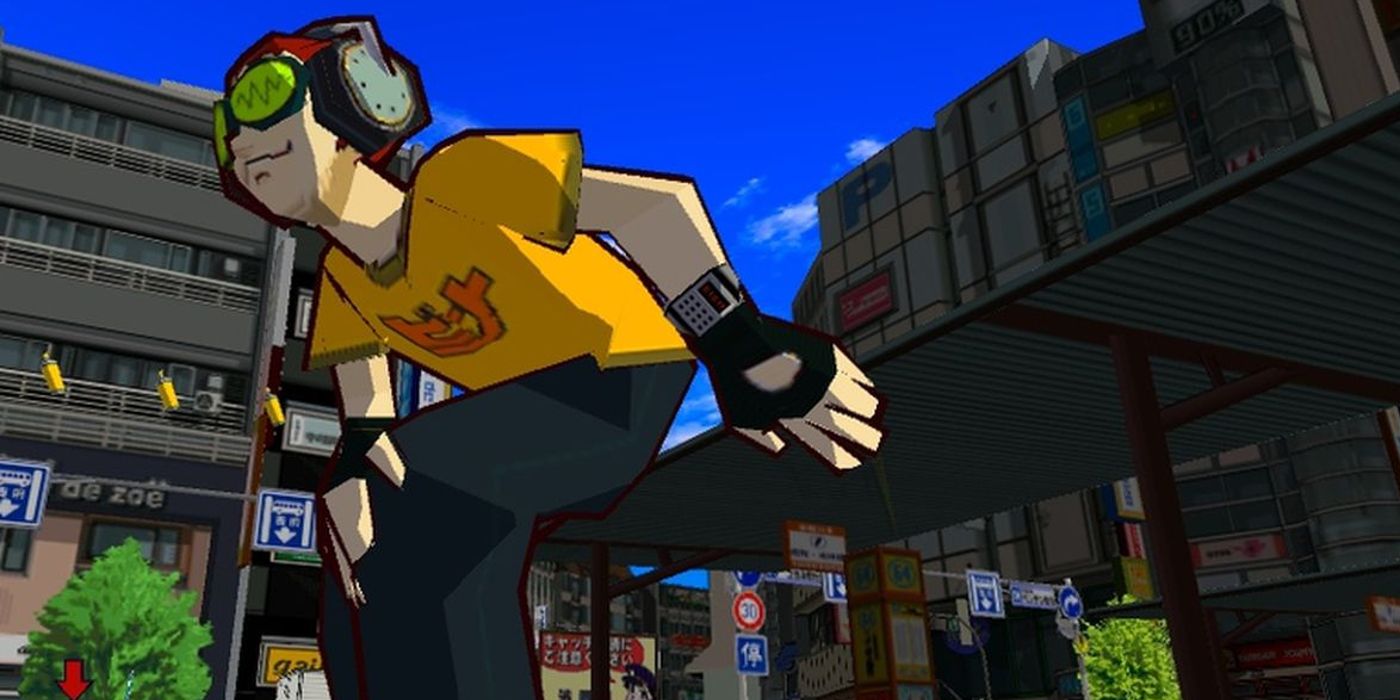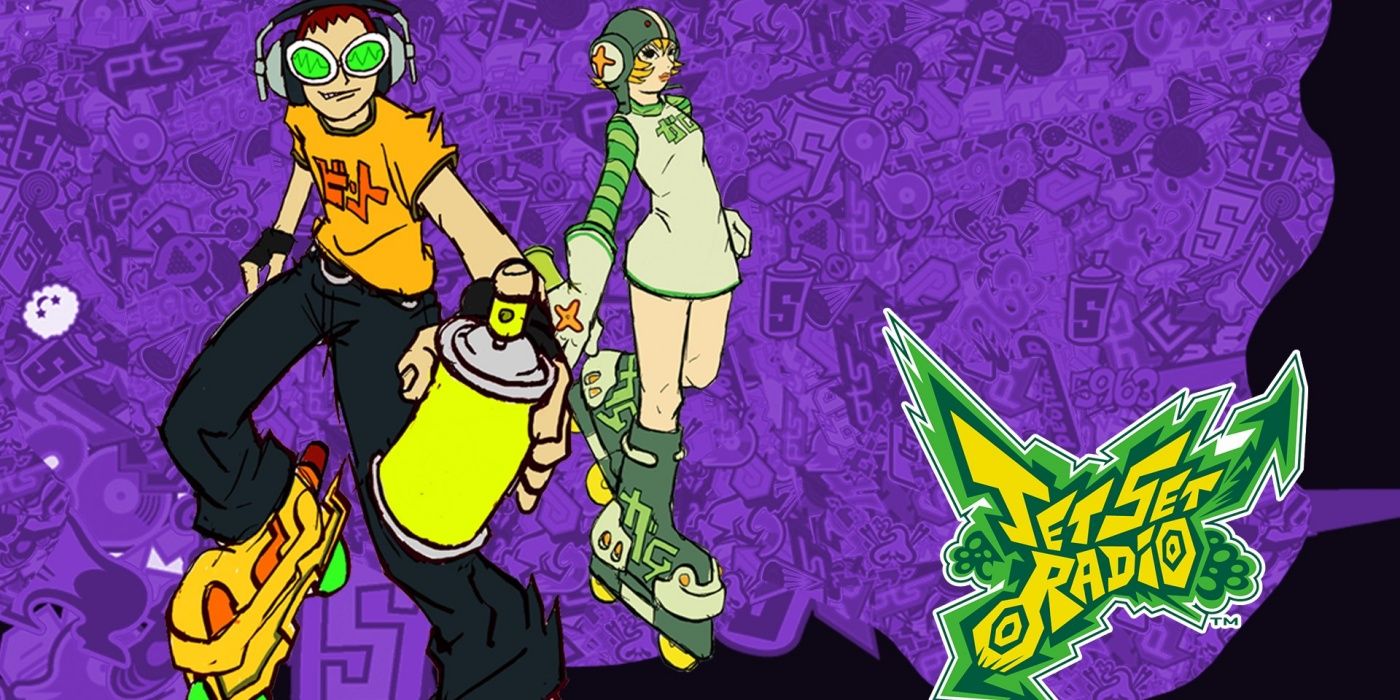Sega's recently announced plans to revive the Jet Set Radio and Crazy Taxi franchises as battle royales leave a lot to be desired, especially Jet Set Radio, which deserves something more akin to a proper reboot. Jet Set Radio has only seen a re-release with a modest HD remaster in 2012, and since then, the series has largely been dormant. While it's understandable why Sega may wish to potentially chase the trend started by Fortnite with these new battle royale reboots, it feels like a big mistake to apply it to a franchise like Jet Set Radio.
Jet Set Radio has a cult following with a vocal fan base. The series takes place in the semi-fictional city of Tokyo-to, where gangs of "rudies" - or youths who like to skate through the city and graffiti tag property - compete in turf wars, evading the police and contending with the Rokkaku Corporation. This group seeks to take over the world via a record that can supposedly summon a demon. Fans have latched onto this delightfully nonsensical story, the game's vibrant, cel-shaded art style, and the legendary soundtrack produced and curated by Hideki Naganuma for both the original title and the sequel. However, fans have been clamoring for a new entry (or even a port of the superior sequel, Jet Set Radio Future) for nearly two decades now since the last release on the original Xbox. Unfortunately, those fans had gone largely ignored until 2021, when Sega expressed interest in rebooting Jet Set Radio.
But to tailor Jet Set Radio for a battle royale audience, a lot of what makes the original title unique would need to be distilled to its simplest form. Creating a battle royale in 2022 means facing off against the stiff competition in Fortnite and Call of Duty: Warzone. Aside from the fact that those games already have a particular type of gaming audience in mind, Jet Set Radio fills an entirely different niche than those two series. What makes Jet Set Radio unique is multifold: free-roaming through a wild town, facing off with colorful rivals, customizing graffiti art to tag on buildings, and engaging with the eccentric DJ Professor K. Together these create a specific experience that can't be replicated on a massive scale when a company has to consider the various challenges of live service games.
Jet Set Radio Doesn't Fit In A Battle Royale Setting
Hurdles such as licensing and gameplay feel would have to be bound over. Some of the soul of Jet Set Radio lies in its musical foundations. Though Jet Set composer Hideki Naganuma's return to Sega seems unlikely, several talented producers like Tee Lopes exist that would undoubtedly understand the assignment. But even so, licensing in live service games means that eventually, some of those songs will disappear and detract from a world designed with music in mind. Jet Set Radio relies heavily on its arcade-like feel, which could dampen when 8-64 players join the fray. The game's physics would require a tremendous amount of QA and would likely lead to dissatisfaction by fans if not handled perfectly. Those same arcade-like missions that made the first two games fun to learn and master would probably turn into nothing more than repetitive "daily challenges" to earn currency to buy more skins for characters.
If Sega isn't careful, then it's going to have more competition in the way of Jet Set Radio's spiritual successor, Bomb Rush Cyberfunk, which is set for release later this year. The Japanese publisher needs to remember that Jet Set Radio is a series about self-discovery; being griefed while exploring the world and claiming the city as players' turf while the plot unfolds sounds like an unpleasant time. However, the series has been on hiatus for the better part of two decades and, at the very least, deserves something more than just another free-for-all battle royale. Jet Set Radio deserves another chance to revisit what made it so special in the first place.


